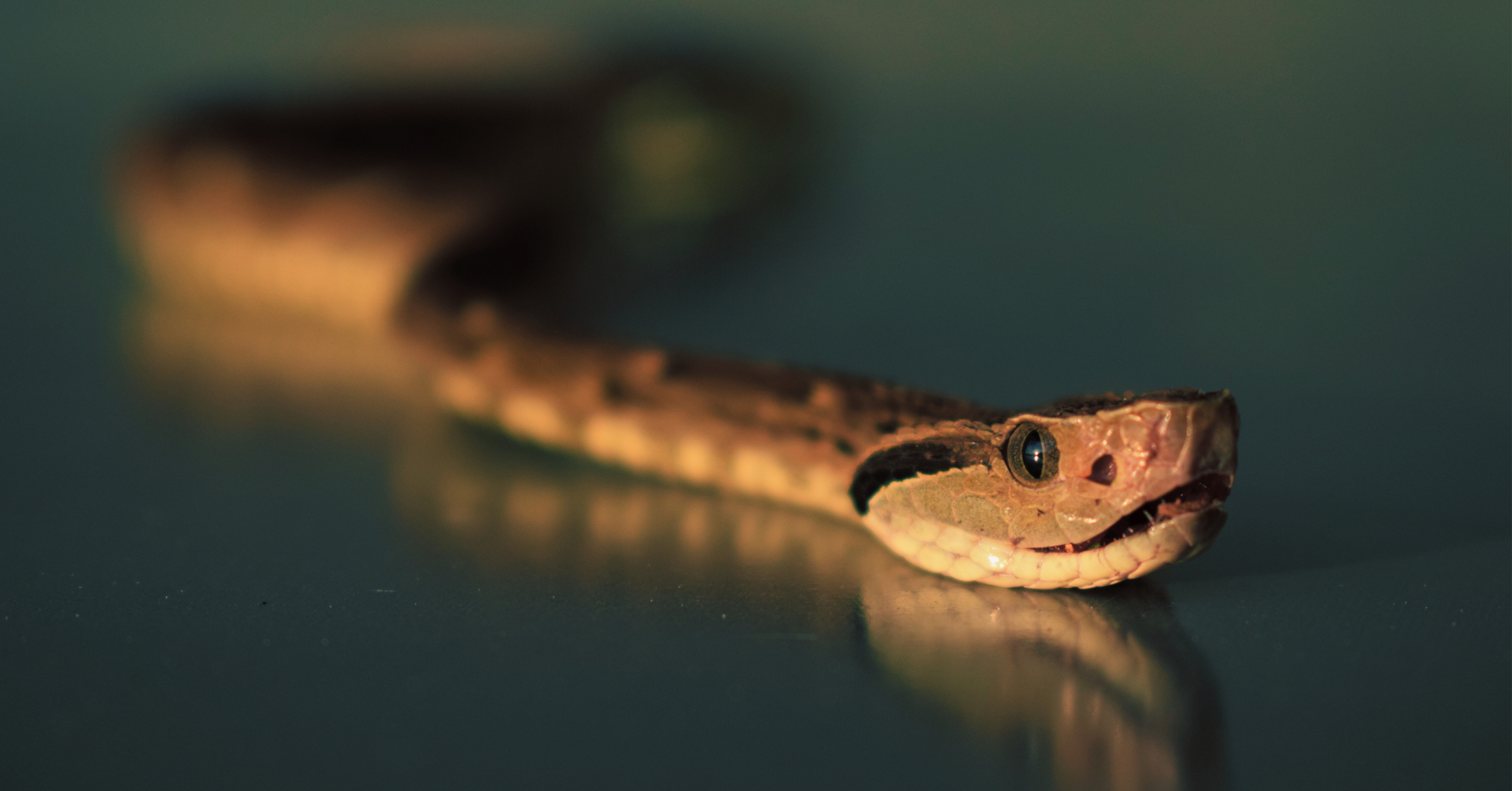
Animal research not only defies imagination – sometimes, it actually seems to mock it.
Consider one recently retracted 2025 study that had researchers “investigating” how snakes react to being stepped on. Their “hypothesis”? That agitating snakes by stepping on them will make them more likely to bite in self-defense.
Groundbreaking stuff, huh?
To “test” this, researchers “stepped on 116 snakes 30 times, totaling over 40,000 steps”. Boots to heads.
Boots to tails.
Boots to bodies.
At three-second intervals.
Before the stomping began, the researchers used metal hooks to press and pin the snakes to the ground. But they soon decided that — in the name of animal welfare — they should step on them, instead.
You read that right: according to the twisted logic of vivisectors, snakes getting their heads stepped on have good/better welfare. This is vivisectionist ethics in action.

Naturally, the researchers also claimed that their “work” was “ethical” because they avoided “excessive” suffering and tried to limit how many “specimens” (read: sentient beings) they brought their feet down on — because according to animal researchers, harming fewer animals somehow makes the harm acceptable . . . even when those animals include babies.
Indeed, halfway through the study, the researchers were hit with a brainwave and started asking: What about the babies?
Already stomping adult and juvenile snakes, they suddenly became curious about hatchlings. So, of course, they added baby snakes to the study — and started stepping on their heads, too.
The “discovery”? That snakes become agitated when humans repeatedly and intentionally step on them, especially their heads.
This finding likely surprised only one human on Earth: the lead researcher himself. He’s reportedly been bitten by snakes so many times — including during this study, when a fang pierced his stomping boot — that he’s now allergic to both snake venom and the antidote.
Another “finding”? That environmental, morphological, and other factors influence when snakes bite defensively. In other words: behavior depends on context.
This is not only common sense but already well-established science — as were other of the researchers’ so-called conclusions.
Immediately after reporting that young, female snakes are “more prone to biting”, the researchers admitted that this group is “the major cause” of snakebites. So, apparently, the existing, conclusive body of knowledge just wasn’t quite enough.
They needed to step on snakes 40,000 times to be sure.
This isn’t just about one study. It’s a symptom of a corrupt industry, one that praises cruelty as “curiosity”, repackages existing facts as “discovery”, and calls violence “science”.
A system in which animals suffer, researchers profit, and the truth gets trampled.
A system that we must rise up and stop.
Your call to action: The Cold-blooded Animal Research and Exhibition (CARE) Act (H.R. 2976) aims to amend the Animal Welfare Act (AWA) to finally include cold-blooded animals in its definition of “animal”, bringing them under its scope of federal legal recognition. Tell your U.S. Representative to support the CARE Act now to help cold-blooded animals.
Share this page on X or Bluesky.
Or share this link anywhere:
riseforanimals.org/news/researchers-step-on-baby-snakes